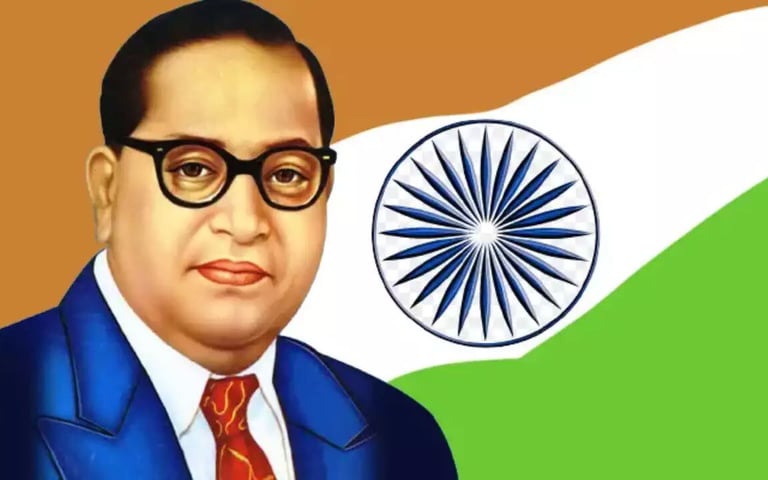Dr. B.R. Ambedkar: A Champion of Social Justice and Equality in India
This blog explores the life and contributions of Dr. B.R. Ambedkar, a prominent figure in Indian history known for his advocacy for social justice and equality. The blog discusses Ambedkar's early life, his struggles against discrimination, and his role in drafting the Constitution of India. It highlights his efforts to promote education, reform the legal system, and uplift marginalized communities. The blog also touches upon his political leadership and enduring legacy, emphasizing his impact on Indian society and his ongoing inspiration for millions. Written in simple English and an explanatory tone, the blog aims to make Ambedkar's story accessible and understandable to a wide audience.
Team Karmanya Gurutvam
4/14/20242 min read


Dr. B.R. Ambedkar: A Champion of Social Justice and Equality in India
Dr. Bhimrao Ramji Ambedkar, affectionately known as Babasaheb Ambedkar, stands as a towering figure in Indian history, revered for his unwavering dedication to challenging social discrimination and championing the rights of the marginalized. Born in 1891 into a Dalit family, Ambedkar experienced firsthand the pervasive discrimination and inequality entrenched in Indian society, shaping his lifelong commitment to social reform and activism.
Ambedkar's indelible imprint on India spans various domains, but his most enduring legacy undoubtedly lies in his instrumental role in crafting the Constitution of India. Serving as the Chairman of the Drafting Committee, Ambedkar played a pivotal role in shaping the foundational document of independent India, infusing it with principles of inclusivity, equality, and social justice.
Central to Ambedkar's constitutional vision was the enshrinement of fundamental rights, emphasizing the inherent dignity and equality of all individuals irrespective of their social standing. He fervently believed in safeguarding basic liberties such as the right to equality, freedom of expression, and access to education as indispensable pillars of a just society.
Beyond his constitutional endeavors, Ambedkar fervently advocated for social reform, particularly targeting the oppressive caste system. Recognizing caste-based discrimination as a formidable barrier to societal progress, he tirelessly campaigned for its abolition and tirelessly worked towards the upliftment of the marginalized Dalit community.
Education emerged as a cornerstone of Ambedkar's agenda for empowerment. A staunch advocate for education, he himself attained a formidable academic pedigree, including a doctorate from Columbia University. Propounding the belief that education was the harbinger of social transformation, Ambedkar dedicated himself to expanding educational opportunities for the disenfranchised sections of society.
In the realm of law, Ambedkar's contributions were equally profound. Serving as India's inaugural Law Minister, he spearheaded groundbreaking legal reforms aimed at upholding the principles of equality before the law and safeguarding the rights of the oppressed. Among his seminal achievements was the introduction of the Hindu Code Bill, a landmark legislation aimed at modernizing and codifying Hindu personal laws.
Ambedkar's impact transcended legal and social spheres; he emerged as a formidable political leader, founding the Independent Labour Party and later the Scheduled Castes Federation to provide political representation for Dalits. His pivotal role in the formation of the Republican Party of India underscored his enduring commitment to empowering the marginalized through political mobilization.
In summation, Dr. B.R. Ambedkar epitomizes the ethos of social justice and equality in India, leaving an indelible legacy that continues to reverberate through the corridors of history. His tireless advocacy, pivotal role in crafting the Constitution, and steadfast commitment to the upliftment of the marginalized serve as enduring inspirations, reaffirming the imperative of pursuing social justice and equality for all.
Empowering Education, Transforming Lives
info@karmanyagurutvam.com